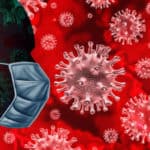When Hepatitis C Drugs Impact Your Thyroid


Treatment for Hepatitis C typically involves a cocktail of potent medications that can be tough on your body. Although several pharmaceutical companies are aiming to bring interferon-free drug regimens to the list of approved Hepatitis C treatments in 2014, the current standard includes an interferon-based medication. One of the challenging problems that can result from interferon-based treatment is a thyroid imbalance. Luckily, there are some natural strategies to help correct an underactive thyroid.
About the Thyroid
A gland in the front of the neck that is about the size of an apricot, the thyroid helps control many bodily functions by producing thyroid hormones. Affecting appetite, weight, energy level, digestion and concentration, the thyroid gland works like a factory that uses iodine (mostly from the diet in foods such as seafood and salt) to produce thyroid hormones. Among other jobs, thyroid hormones help to regulate the body’s metabolism.
Interferon can affect the thyroid gland, causing it to be overactive or underactive. An underactive thyroid, also known as hypothyroidism, can cause the following:
- Fatigue
- Slowed pulse and slowed speech
- Goiter
- Sensitivity to cold
- Weight gain
- Constipation
- Confusion
- Depression
- Numb fingers or hands
- Dry, thick, coarse hair
- Headaches
- Menstrual irregularities
An overactive thyroid, also known as hyperthyroidism, can cause the following:
- Sudden weight loss
- A rapid or irregular heartbeat
- Sweating
- Nervousness
- Irritability
Thyroid Problems from Interferon
Thyroid disturbances represent a potential side effect from interferon-based therapies.
- According to a Norwegian study published in a 2002 edition of the Journal of Internal Medicine, thyroid dysfunction occurred in nearly 12 percent of patients treated for chronic Hepatitis C with interferon-alpha and ribavirin.
- As published in the March-April 2013 issue of Endocrine Practice, Australian researchers confirm that thyroid disease is the most common endocrine disorder associated with Hepatitis C, especially when treated with interferon-based therapy. They advise patients who receive interferon and ribavirin medications to undergo monthly thyroid hormone testing.
Natural Thyroid Support
When a thyroid imbalance is confirmed, physicians will typically proceed with medications designed to regulate thyroid hormones. However, this additional medication can require many repeat visits to get the right dosage – and can aggravate the thyroid imbalance in the meantime. Under your physician’s permission, some people choose to support their thyroid’s health naturally.
Although this list is not exhaustive, natural health advocates suggest the following for helping a thyroid gland that is underactive:
- Iodine – Iodine is essential for producing thyroid hormones.
- Selenium – An essential amino acid, selenium is used to convert the inactive thyroid hormone (T4) into the form (T3).
- Vitamin B6 – Homocysteine negatively affects thyroid function, and Vitamin B6 helps to rid the body of excess homocysteine.
- Guggulipid – This helps to stimulate the thyroid and allow for easier absorption of iodine.
- L-Tyrosine – The thyroid gland combines tyrosine and iodine to make thyroid hormone.
- Ashwaghanda – This Ayuverdic herb stimulates the production of T3 and T4. In addition, ashwagandha helps the body better respond to stress, a key component of supporting thyroid health.
Instead of taking a handful of capsules to support an underactive thyroid, it is more convenient and cost effective to take a comprehensive supplement such as Thyroid Support.
Hypothyroidism is a common sequela of interferon-based therapy for Hepatitis C, posing a potential obstacle to completing this valuable treatment. Those who experience fatigue, weight gain, cold extremities, depression and constipation from combination therapy will likely need to have their thyroid function tested. With confirmation of this imbalance and consent from a physician, return your thyroid gland to a balanced state by taking Thyroid Support (or something similar). Upon helping regulate the thyroid gland, you will be more capable of continuing the drug cocktail intended to eliminate the Hepatitis C virus – giving you a better chance of a successful outcome.
http://umm.edu/health/medical/altmed/condition/hypothyroidism, Hypothyroidism, Retrieved October 6, 2013, University of Maryland Medical Center, 2013.
http://www.doctoroz.com/article/3-ways-boost-thyroid-function, 3 Ways to Boost Thyroid Function, Lisa Lynn, Retrieved October 6, 2013, Harpo, Inc., 2013.
http://www.fiercebiotech.com/press-releases/first-interferon-free-regimens-treatment-hepatitis-c-virus-are-expected-lau, The First Interferon-Free Regimens for Treatment of Hepatitis C Virus Are Expected to Launch in 2014 in the United States and Europe and Will Experience Aggressive and Widespread Uptake Through 2021, Retrieved October 6, 2013, FierceMarkets, 2013.
http://www.helium.com/items/1527695-brahmi, Alternative Medicine: Health Benefits of Brahmi, Vidhya Lingam, Retrieved October 6, 2013, Helium, Inc., 2013.
http://www.hepatitis.va.gov/patient/hcv/treat/side-effects-single-page.asp, Side Effects Guide: Entire Lesson, Retrieved October 6, 2013, US Department of Veteran Affairs, 2013.
http://www.mayoclinic.com/health/hyperthyroidism/DS00344, Hyperthyroidism, Retrieved October 6, 2013, Mayo Foundation for Medical Education and Research, 2013.
http://www.ncbi.nlm.nih.gov/pubmed/11982739, Thyroid dysfunction during treatment of chronic hepatitis C with interferon alpha: no association with either interferon dosage or efficacy of therapy, Dalgard O, et al, Retrieved October 6, 2013, Journal of Internal Medicine, May 2002.
http://www.ncbi.nlm.nih.gov/pubmed/23186968, Thyroid disease in chronic hepatitis C infection treated with combination interferon-α and ribavirin: management strategies and future perspective, Tran HA, et al, Retrieved October 6, 2013, Endocrine Practice, March-April 2013.
http://www.onhealth.com/thyroid_disease/article.htm#thyroid_101_what_is_the_thyroid_and_what_does_it_do, Thyroid Disease, Robert Ferry Jr. MD, Retrieved October 6, 2013, MedicineNet, Inc., 2013.
http://www.plosone.org/article/info%3Adoi%2F10.1371%2Fjournal.pone.0055364, Frequency of Thyroid Dysfunctions during Interferon Alpha Treatment of Single and Combination Therapy in Hepatitis C Virus-Infected Patients: A Systematic Review Based Analysis, F. Haamann, et al, Retrieved October 6, 2013, PLoS One, February 2013.







